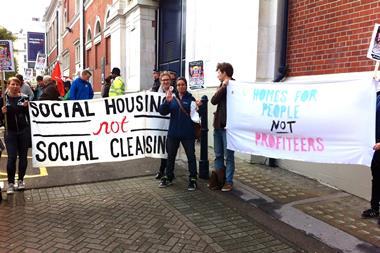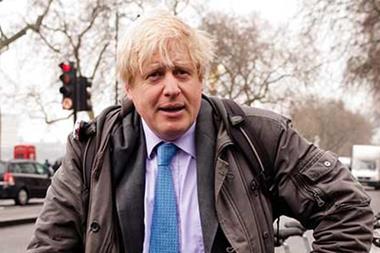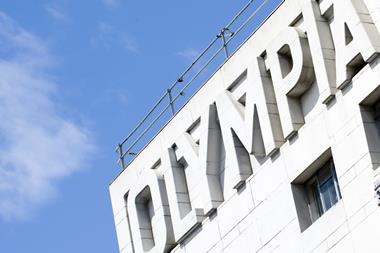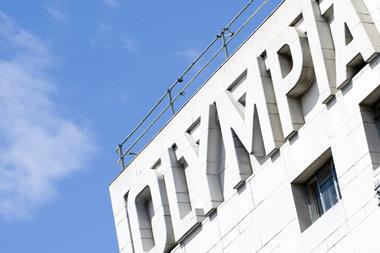Wow. MIPIM UK got off to a feisty start on Wednesday, didn’t it? And not because of a controversial statement by one of the speakers… simply because a controversial character was there!
That speaker was, of course, London mayor, Boris Johnson, whose mere presence prompted hundreds of campaigners to try and disrupt his opening address with their #BlockBoris protest.
Disrupt it they did. Indeed, I’m told by one of our reporters that at 11.30am, delegates were barricaded in for three hours (in very much the wrong sort of lock-in) and that protestors tried to storm the entrance. Apparently, campaigners also built a mud hut and were heard loudly banging on the walls for much of the day.
Delegates were told they could get out of the building from the rear, but I am guessing not many did. After all, when do you get this sort of excitement at any conference, let alone a property conference? (No, gate-crashing someone’s exclusive yacht party in Cannes does not count).
On a serious note, the campaigners have a point. London is a frighteningly expensive place to live (which is why I no longer live there/here - delete accordingly - a one-bed garden flat sans parking in zone three no match for a four-bed detached with parking in Margate).
However, as with so many protests, the voices of the well-meaning were drowned out by the usual suspects hijacking the protest to suit their own ends. Unite was there talking about the National Health Service, for instance.
And even among the affordable housing brigade, all was not quite what it seemed. Our reporter talked to a posh young woman who made some salient points about affordability in London, only to reveal she lives on inherited wealth and actually owns a number of properties in the city that she rents out. A bit rich on multiple levels, methinks.
Another point worth making is that affordable housing and how to solve the London housing crisis was the theme of many of the talks. Johnson himself responded to the claim by protestors that the London housing market is overrun by overseas investors with the statistic that only 3% of homes in the capital are actually owned by overseas investors. Admittedly, it is double that by value, but even so, hardly overrun.
Dubbing them the “xenophobic people on the left outside”, he did not shy away from commenting on the protest, conceding: “We do have to deal with the fact that London’s success, which we must celebrate, has led to the cost of the basic human need for housing growing out of reach of many people.”
However, it was “a bad answer” to simply lay the blame at the door of international investors, he argued. The solution was to continue to build more homes. “We’ve built more homes in London this year than [in any year] since 1980,” he claimed. “There have been more starts on site than since the 1930s, before the green belt even existed and people could build anywhere.”
Whether enough housing is being built is another matter altogether and as everyone is acutely aware, we are way off target. There is also a certain irony, of course, in protesters outside demanding more affordable homes as councils inside were looking for investors to fund more of just that in their regions.
Not quite singing from the same hymn sheet perhaps, but hardly the diametrically opposed stances of the morally righteous versus morally redundant the protestors would have the public believe.




























No comments yet